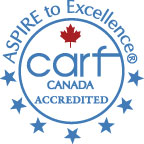Ethics
Ethical Decision Making at Dale Brain Injury Services
A great number of decisions – clinical, operational and administrative – are made on a daily basis at Dale Brain Injury Services. We are committed to decision making that considers the ethical issues involved, and to following principles of ethical decision-making. Ethical issues arise when conflicting values, beliefs and goals are present among the decision-makers, when conflicting obligations or responsibilities are evident, and when problems give rise to concerns regarding human rights, fairness and justice.
Making good ethical decisions requires a trained sensitivity to ethical issues and a practical method for exploring the ethical aspects of a decision. At least four sources of ethical standards can be identified: Principle Based Ethics, Ethics of Care, Community Based Ethics and Professional Ethics. Each of these sources approaches ethical decision-making from a slightly different viewpoint. It should be noted that the Regulated Health Care Professionals at Dale Brain Injury Services are also governed by ethical standards of practice established by their professional Colleges.
Consideration of ethical issues has long been an integral part of staff training. We are going to extend this training through a continuing series of in-service workshops to all staff and by ensuring that ethical issues continue to play a large role in decision-making concerning our clients. We also have an in-house ethics committee that will provide a forum to present views about specific cases and to allow various perspectives to be raised ‘outside’ of the usual team format.
Ethical Approaches: Principle Based Ethics
Principle Based Ethics is an overall guide to ethical behavior encompassing the principles of:
- Autonomy - the duty to respect persons regarding their right to independent self-determination regarding the course of their lives and issues concerning the integrity of their bodies and minds
- Beneficence - the obligation to do good
- Non-maleficence - the obligation to avoid harm
- Justice/Nondiscrimination - the duty to treat individuals fairly, not to discriminate on the basis of irrelevant characteristics
- Fidelity - the duty to keep promises
- Accountability - presenting clear and transparent accounting of decisions and ethical justifications as well as assuming their consequences
Applying principle based ethics at Stage 1 of the ethical decision making process sets the "tone" of the discussion/deliberation and ensures adherence to basic ethical principles.
Ethics of Care
The Ethics of Care holds that moral/ethical decision making is not so much about rights or funding rules to arbitrate conflicting interests as it is about finding solutions that reduce conflict by focusing on human dignity and the good of the entire community/society. The ethic does not see people as autonomous and unconnected but rather as rooted within relationships - for instance, family relationships, social relationships and political relationships. The ethics of care says that every time decisions are made, there needs to be a consideration of what kind of relationship is at stake. At its core, the ethics of care is respectful of interconnection.
Community Based Ethics
Community Based Ethics is the specific application of ethics to community services with particular reference to how decisions get made. Generally speaking, it is a process to sort out the facts, options and principles raised in each case to determine the right solution in a range of solutions. It uses a range of legal principles including beneficence and autonomy but also includes the following standards:
- Proportionality - if the client may be harmed or helped by the decision/plan then the plan should be offered if the benefit outweighs the burden
- Justice - that all persons are equal and should be treated equally
- Self Determination - that clients capable of making decisions have the right to consent to or refuse care even if the result of that refusal will have a negative impact on them
- Best Interest - that those who cannot decide have the right to have decisions made for them to maximize their welfare
Professional Ethics
Professional Ethics require that the following principles/standards be applied to the ethical decision making process:
- Impartiality; objectivity
- Openness; full discussion
- Confidentiality
- Due diligence / duty of care
- Fidelity to professional responsibilities
- Avoiding potential of apparent conflict of interest
- Putting the Approaches Together
Each of the above ethical perspectives or approaches helps to determine what standard of behavior can be considered ethical. Though the different approaches may not all answer "What is ethical?" in the same way, each gives important information with which to determine what is ethical in a particular circumstance. Certainly professional ethics would be applied to all decisions made by an agency, whereas the ethics of care would be applied where appropriate.
The Ethics Committee provides an interdisciplinary forum to present views about specific cases and to air many perspectives. It creates an open, non-legal deliberative process where people can and must argue their position and be challenged. It forces people to think through the facts of an issue and to articulate their position in front of peers. A strong ethics committee functions freely and its deliberations are uncontaminated by the agency's interest. The agency may choose not to accept the views of the committee for its own reasons but those views should be allowed to develop independently. The DBIS Ethics Committee operates openly and clients, families and professionals will be advised of the committee membership and where and when it meets. Clients and/or their circle of care members will be advised if their case is going to be discussed and know the role the ethics committee will play.




